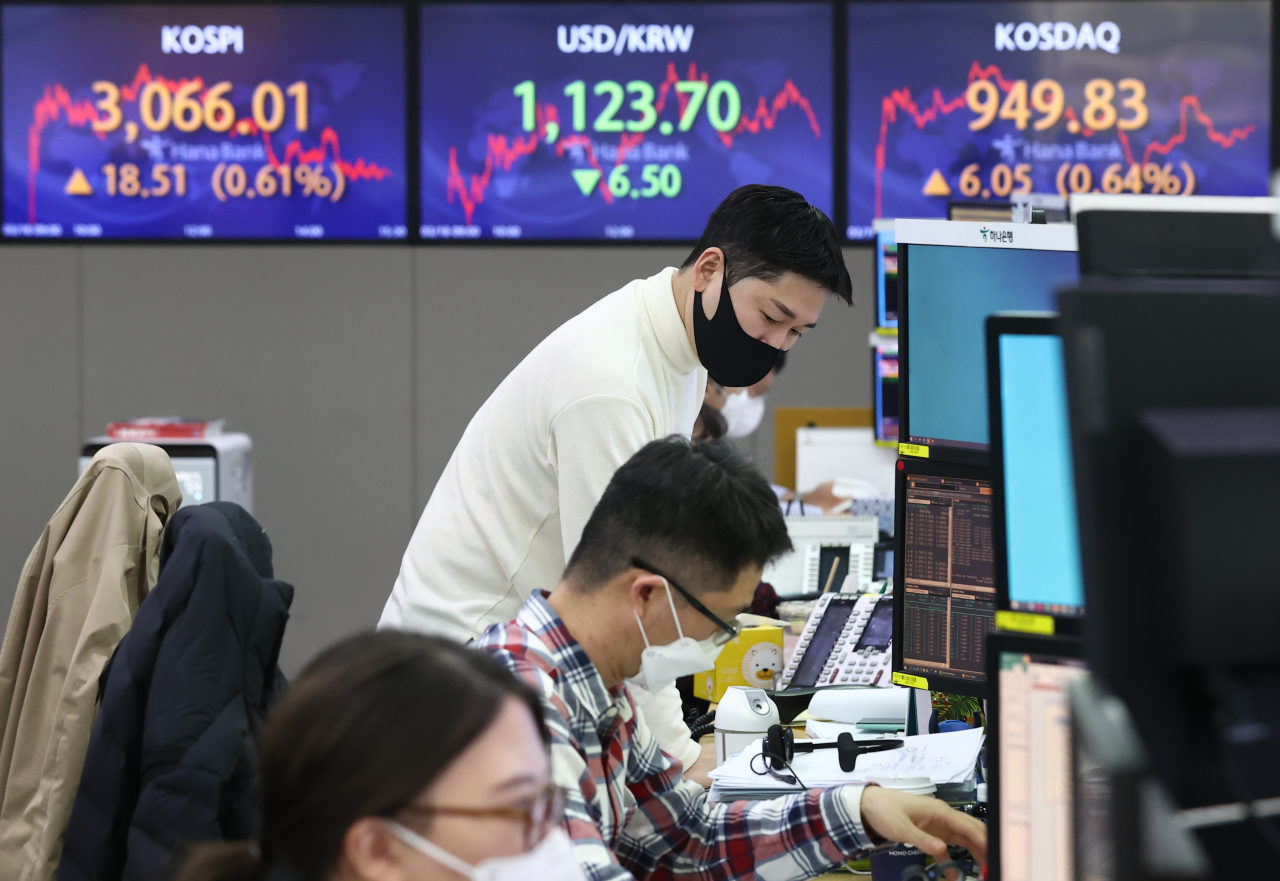
Electronic signboards at a Hana Bank dealing room in Seoul show the benchmark Korea Composite Stock Price Index (KOSPI) closed at 3,066.01 on March 18, 2021, up 18.51 points or 0.61 percent from the previous session's close. (Yonhap)
South Korean stocks rebounded Thursday on strong foreign buying, following the US Federal Reserve's reiteration that rates will remain at near zero through 2023. The Korean won rose against the US dollar.
The benchmark Korea Composite Stock Price Index (KOSPI) gained 18.51 points, or 0.61 percent, to close at 3,066.01.
Trading volume was moderate at about 1.2 billion shares worth some 14.8 trillion won ($13.2 billion), with gainers outnumbering losers 503 to 329.
Foreigners bought a net 483 billion won, while retail investors sold a net 620 billion won. Institutions purchased a net 137 billion won.
The KOSPI rose as high as to 3,090.19 points, largely as the Federal Open Market Committee (FOMC) partially soothed market concerns over rate hikes.
"Stocks came to a strong start as FOMC meeting results eased the investor concerns, but erased some of those gains on institutional selling," HI Investment & Securities analyst Park Sang-hyun said.
Auto and tech stocks performed well in Seoul, while insurance and energy slumped.
Top cap Samsung Electronics advanced 0.73 percent to 82,900 won, and No. 2 chipmaker SK hynix gained 1.43 percent to 142,000 won.
Giant internet portal operator Naver surged 5.22 percent to 403,500 won, and its rival Kakao increased 2.68 percent to 498,000 won.
Pharmaceutical giant Samsung Biologics moved up 0.42 percent to 722,000 won, but Celltrion lost 0.51 percent to 292,000 won.
Leading chemical firm LG Chem added 0.47 percent to 861,000 won, and top automaker Hyundai Motor went up 0.86 percent to 234,000 won.
The local currency closed at 1,123.7 won against the US dollar, up 6.5 won from the previous session's close.
Bond prices, which move inversely to yields, closed higher. The yield on three-year Treasurys lost 4.4 basis points to 1.133 percent, and the return on the benchmark five-year government bond fell 0.9 basis point to 1.630 percent. (Yonhap)






